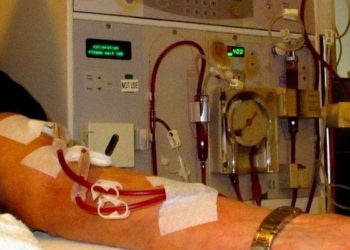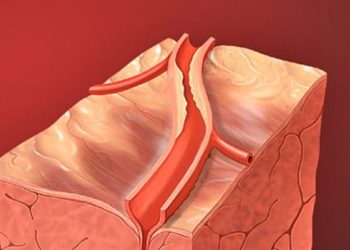#VisualAbstract: Efficacy and Safety of Low-Dose Colchicine after Myocardial Infarction
1. Colchicine given to patients after a myocardial infarction led to a significantly lower risk of death from cardiovascular causes, resuscitations, myocardial infarctions, stroke, and hospitalizations for angina.
2. The main adverse events from colchicine, as compared to placebo, were diarrhea, nausea, and pneumonia.
Evidence Rating Level: 1 (Excellent)
Study Rundown: The American Heart Association and the American Stroke Association guidelines recommend statins to be used in patients following ischemic stroke. Prior studies have shown a decrease in cardiovascular events when using an inflammatory modulator, but it came with the risk of increased infection rates. This randomized-controlled trial examined the effects and long-term efficacy of low-dose colchicine, an inexpensive anti-inflammatory medication, on cardiovascular outcomes. 0.5mg of daily colchicine was given to patients within 30 days after a myocardial infarction and followed for about 20 months. Overall, there was a decreased risk of cardiovascular events among the participants taking colchicine, including death from cardiovascular causes, resuscitated cardiac arrest, myocardial infarction, stroke, and hospitalization for angina leading to coronary revascularization. There was an increased rate of diarrhea, nausea, and pneumonia among the colchicine group, as compared to the placebo group. This large, longitudinal study included a majority of patients that received aspirin, another antiplatelet agent, statin, and PCI (percutaneous coronary intervention) in addition to colchicine. Further research is needed to study more patients and determine the longer-term efficacy and safety of colchicine in preventing cardiac events.
Click to read the study in NEJM
©2019 2 Minute Medicine, Inc. All rights reserved. No works may be reproduced without expressed written consent from 2 Minute Medicine, Inc. Inquire about licensing here. No article should be construed as medical advice and is not intended as such by the authors or by 2 Minute Medicine, Inc.









